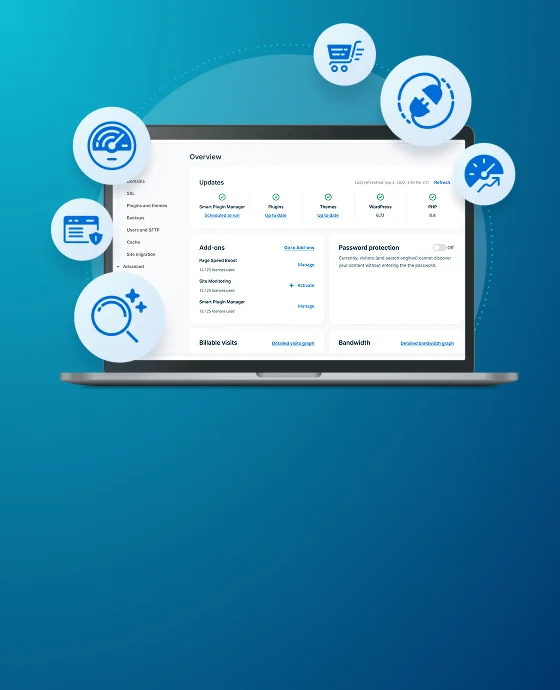
Refreshing the Tech Stack for an Independent News Publication
The Code Company worked with WP Engine to provide news site Crikey with an up-to-date WordPress experience and faster-than-ever page speeds.
The Code Company is a technical WordPress agency that solves complex problems at scale. Given the agency’s specific expertise in helping niche publishers rebuild and customize their sites, it was no wonder that digital media company Private Media enlisted their services for help reimagining the entire website (and technology stack) for one of its most widely-read publications, Crikey.
Crikey is a stalwart of Australian digital media, and since 2000, it’s been known for publishing critical journalism that probes, pokes, and investigates. With a growing, loyal readership base that reaches them online, Crikey’s website is central to its overall mission, but as the publication grew, the capabilities of its site had begun to lag.
To find out more about how The Code Company worked with Crikey to rebuild the site, ultimately resulting in over 200% increases in frontend and backend performance, we spoke with founder and CEO Ben May to hear all about the project.
Before we dive deeper into the story with Crikey, tell us a little more about the work The Code Company does.
The Code Company is a specialist technical agency that helps media organizations find the best way to build, operate, and monetize their digital publishing platforms.
What makes us different is that we’re not a full-service agency that codes on the side. We are WordPress specialists that focus exclusively on engineering-grade website projects, and our team comes to work every day because they like helping publishers find smart solutions to complex problems.
How did the Crikey project come to you?
Crikey was a referral from a partner agency that had experienced our work and knew The Code Company was well-suited for the job.
What initially jumped out as being the biggest challenge with the Crikey project?
Crikey was one of the first-ever digital publishers to use WordPress, so the original site (created in 2008) was written in very basic and outdated backend code. This meant that the team at Crikey had been using lots of manual overrides and “hacks” to meet their business needs. Their website was clunky and inefficient.
The biggest priority was removing all of those cobwebs and rewriting custom business logic using WordPress best practices and standards.
Were there any other aspects of the project that required special attention?
The original site was hosted on dedicated physical servers and wasn’t meeting Crikey’s current business requirements. Initially, they opted to move to a cloud-based DIY solution but this added unnecessary complexity, and the resources demanded were impractical for a small publisher. That’s when The Code Company recommended WP Engine.
What was WP Engine’s role? How did The Code Company benefit as an Agency Partner?
For a high-traffic site like Crikey, WP Engine was ideal because it solved most of their challenges without demanding a huge internal resource commitment. They needed a hosting solution that could scale with their business and wouldn’t let them down during the moments that matter most, such as traffic spikes and major events.
Migrating to WP Engine resulted in an immediate improvement in site speed, performance, and security. It also meant the Crikey team no longer had to worry about backups, caching, and updates.
This was a huge resource-saver and it gave Crikey more time and budget to invest in their content and revenue strategy.
The results post-relaunch are pretty amazing—tell us more about some of the most compelling metrics.
As soon as Crikey’s site was up and running on WP Engine’s platform they saw a huge reduction in two metrics that really speak to site speed and a fast, frontend user experience:backend load time (which improved from 1400ms to 400ms),and average end user load time (from 50 seconds to 5 seconds).
In sum, this resulted in more than 200% increases in frontend and backend performance.
What about other, less metrics-based results?
By moving to full HTTPS, a wide range of outstanding, partially-implemented HTTPS issues were solved.
Hundreds of thousands of defunct, duplicated, or corrupted user accounts were cleaned from the user database.
The sales team transitioned from a cumbersome AdTech platform to Google Ad Manager, which enabled them to create more sophisticated client solutions.
With this successful project behind you, do you plan to continue focusing on similar projects with other niche publishers? What else is on the horizon?
It’s certainly been a challenging year for the media industry, but the speed of digital transformation has opened up huge possibilities for publishers that are smart and agile enough to capitalise on this shifting sector.
It’s a particularly exciting time for niche publishers who have a highly targeted and engaged audience. The Code Company is talking to an increasing number of niche publishers who have outgrown their existing technology stack, as well as new publishers who may be overwhelmed by all of the options available to them.
We recently launched a custom publishing stack for new publishers. By simplifying the tech selection process, these publishers are able to create a professional, scalable WordPress publishing site and eliminate all the usual complexity and risk faced by start-ups.
The stack provides:
- A customised WordPress site that is powered by WP Engine
- SEO friendly with tools baked in
- Native newsletter building within WordPress
- Integrations with any major ESP (Campaign Monitor, MailChimp, etc.)
Find out more about working with The Code Company for your next digital publishing project, and visit WP Engine to find out more about our Agency Partner Program—the largest partner network in the WordPress ecosystem.


Start the conversation.